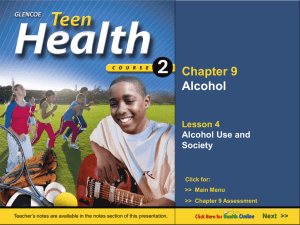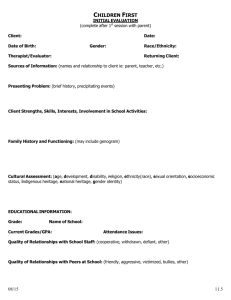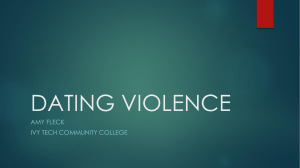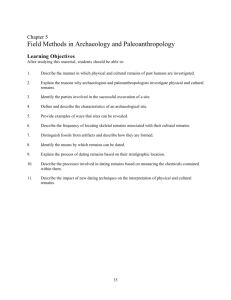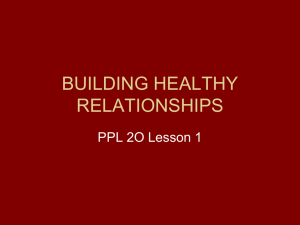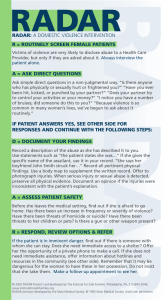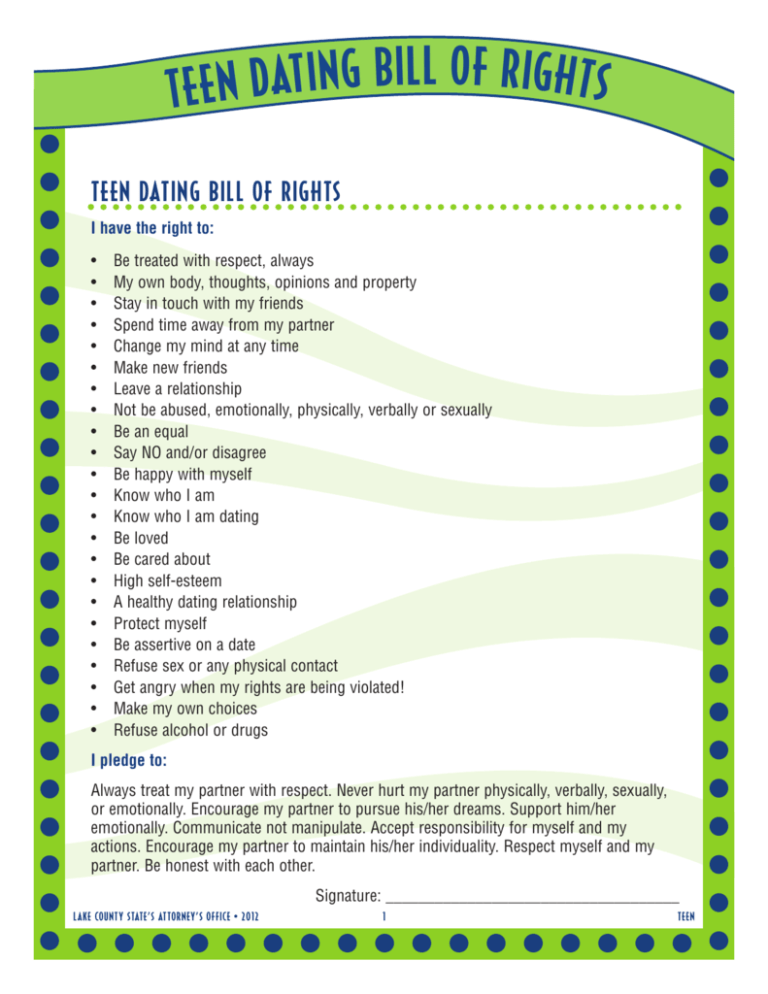
L
O
L
F
I
B
R
G
I
G
N
I
H TS
T
A
D
N
E
TE
TEEN DATING BILL OF RIGHTS
I have the right to:
•
•
•
•
•
•
•
•
•
•
•
•
•
•
•
•
•
•
•
•
•
•
•
Be treated with respect, always
My own body, thoughts, opinions and property
Stay in touch with my friends
Spend time away from my partner
Change my mind at any time
Make new friends
Leave a relationship
Not be abused, emotionally, physically, verbally or sexually
Be an equal
Say NO and/or disagree
Be happy with myself
Know who I am
Know who I am dating
Be loved
Be cared about
High self-esteem
A healthy dating relationship
Protect myself
Be assertive on a date
Refuse sex or any physical contact
Get angry when my rights are being violated!
Make my own choices
Refuse alcohol or drugs
I pledge to:
Always treat my partner with respect. Never hurt my partner physically, verbally, sexually,
or emotionally. Encourage my partner to pursue his/her dreams. Support him/her
emotionally. Communicate not manipulate. Accept responsibility for myself and my
actions. Encourage my partner to maintain his/her individuality. Respect myself and my
partner. Be honest with each other.
Signature: ____________________________________
LAKE COUNTY STATE’S ATTORNEY’S OFFICE • 2012
1
TEEN
I
O
T
N
A
L
S
E
HIPS
R
Y
H
T
L
A
E
H
SELF RESPECT • SELF CONFIDENCE • SELF CARE
As a teen, you are given the chance to spend more time with friends and possibly start dating. Along with this freedom comes
additional responsibility. It is important to understand that all relationships in your life should be built on a foundation of respect,
honesty and trust. Healthy relationships with dating partners and friends are a choice. Every individual should, and has a right, to be
respected, be happy and feel safe.
WHAT IS A HEALTHY RELATIONSHIP?
In healthy relationships, you and the person you are dating feel good about each other and yourselves. You do things together and
you talk to one another about how you are feeling about each other. These relationships are built on respect and honesty between
both people. You listen to each other’s thoughts and opinions and accept each other’s right to say no or to change his/her mind.
Communication is very important. You should be able to let the other person know how you are feeling. You might disagree or argue
sometimes, but you should be able to talk things out together to reach a compromise.
HOW DO YOU KNOW IF YOU HAVE A HEALTHY RELATIONSHIP?
•
•
•
•
•
You feel safe around the other person and you trust him/her with your feelings.
You respect each other’s opinions, discussions and boundaries.
You enjoy spending time with the other person instead of feeling pressured into spending time with them.
You feel supported in your successes and in times of trouble.
You feel good about yourself.
HEALTHY DATING BEGINS WITH YOU!
In healthy relationships, people respect each other for who they are. This includes respecting and listening to yourself and your
feelings. Self respect and self confidence are about you! It is important for you to:
•
•
•
•
•
Feel like you belong!
Remember, you are equal!
Figure out what you need and take care of yourself!
Listen to your true feelings!
Speak your mind, change your mind and question the world
around you!
•
•
•
•
Be different from your family, your friends and media ideals
(TV, magazines, music) and images!
Feel and be safe!
Become independent!
Follow your passions and be the real you!
The relationships that you make in your teen years will be a very important part of your life. These relationships will teach you some
of the most important lessons about who you are and what you stand for. Make communication, sharing, respect and trust a part of
every relationship in your life.
SELF CARE
It is important to boost your self-confidence, increase your self-awareness, and maintain balance and happiness in your life. Some
suggestions for change:
•
•
•
•
•
•
•
Set time aside daily for yourself.
Express your feelings...don’t keep feelings up inside.
Maintain good relationships with your family and friends. There advise can be invaluable.
Sleep well, eat well and exercise.
Find someone to talk to with. Speaking freely can be helpful in finding balance.
If stressed or overwhelmed with your tasks, clear your mind.
Laugh! Live in the fun moments and cherish the people around you that make you happy.
Today, many people, even young teens, are experiencing large of stress in their lives, usually due to social pressures. It is important
to remember that you cannot be your best self unless you take time to care for your physical, emotional and spiritual self.
www.erikaslighthouse.org 2012
2LAKE COUNTY STATE’S ATTORNEY’S OFFICE • 2012
2
TEEN
C Y B E R WO R L D
...NOT ALL ABUSE IS PHYSICAL!
The potential for abuse through technology goes beyond mere monitoring to harassment, threats and intimidation. One in four teens
in a relationship has experienced harassment, name calling, or put downs from a current or former dating partner through cell phone
or text messaging and nearly one in five has been harassed or put down through a social networking site.
Picard, P (2007). Tech Abuse in Teen Relationships Study. Liz Claiborne Inc. • www.loveisnotabuse.com/serveyresults_2007mstr.htm
FACTS
•
32% of online teens say they have been targets of a range of annoying or potentially menacing online activities. 15% of teens
overall say someone has forwarded or posted a private message they’ve written, 13% say someone has spread a rumor about
them online, 13% say someone has sent them a threatening or aggressive message, and 6% say someone has posted
embarrassing pictures of them online.
•
88% of social media-using teens say they have seen someone be mean or cruel to another person on a social network site.
•
36% of teens who have witnessed others being cruel on social networks have looked to someone for advice about what to do.
American Academy of Pediatrics 2012
TIPS IN CYBER SAFETY
•
Consider changing your cell phone number. If you are concerned that changing your number could escalate the abuse, consider
leaving phone on and active. This way, all activity can be tracked and recorded by law enforcement. You can also consider call
blocking if you decide not to disconnect your phone. Discuss with friends a strategy to prevent abusive partner from getting the
new number.
•
Make your profile private. Be aware of how much you reveal about your contact information, class and work schedules,
extracurricular activities, social events and daily routines.
•
Google yourself. Periodically check to see what information pops up about you. If you come across information that contains
personal information, consider contacting website host for removal of the information.
•
Preserve cell phone / texts/ and electronic evidence. Recording threats, saving texts and printing website communication can
be an essential piece of evidence in a teen dating violence case.
Although these tools can be misused by the abusive partner, they are not the problem. The power and control of the abusive partner
is the real problem. Restricting and avoiding technology is not the answer. How to use it safely and productively is.
SHARE WITH CARE
•
Your online actions can have real-world consequences. The pictures you post and the words you write can affect the people in
your life. Think before you post and share.
•
What you post could have a bigger “audience” than you think. Even if you use privacy settings, it’s important to completely
control who sees your social networking profile, pictures, videos or texts. Before you click “send,” think about how you will feel if
your family, teachers, coaches or neighbors find it.
•
Once you post information online, you can’t take it back. You may think that you’ve deleted information from a site – or that
you will delete it later. Know that older versions may exist on other people’s computers. That means your posts could live
somewhere permanently.
•
Get someone’s okay before you share photos or videos they’re in. Online photo albums are great for storing and sharing
pictures of special events, and camera phones make it easy to capture every moment. Stop and think about your own privacy –
and other people’s – before you share photos and videos online. It can be embarrassing, unfair and even unsafe to send or post
photos and videos without getting permission from the people in them.
Love is trusting...It isn’t keeping tabs with obsessive calls and texting!
LAKE COUNTY STATE’S ATTORNEY’S OFFICE • 2012
3
TEEN
B E AWA R E
...NOT ALL ABUSE IS PHYSICAL!
THERE IS A LIMIT TO UNLIMITED TEXTING!
•
30% of teens said that they have been texted messaged or E-mailed 10-30 times an hour by a partner wanting to check up on
them. (Liz Claiborne, Inc. TRU 2006)
•
19% said that their partner spread rumors about them using a cell phone, E-mail, IM, text, Web chat, blog or networking site like
MySpace or Facebook. (Liz Claiborne, Inc. TRU 2006)
•
Don’t respond to abusive or inappropriate comments. It won’t make the person stop and it has the potential to create more
problems.
•
Keep all records of abusive messages and past texts in the event a police report is necessary.
Teen dating abuse often manifests in many different ways for teen relationships. When one partner uses threats, intimidation, or
manipulation to control the other partner, this becomes an unhealthy dating relationship. Dating partners should communicate freely,
always feel safe, and enjoy one another, so there is no place for fear, control, or abuse of any kind in a partnership. If one partner is
constantly texting or using social media like Facebook to monitor or oversee what the other partner is doing, this can escalate to
violence beginning with emotional abuse and control (such as name calling or invasion of privacy) before there was any pushing,
shoving, or threats of further abuse.
E-MAILS / FACEBOOK / CHATTING / TEXTING...BE SAFE ONLINE!
•
The internet is a public space with real consequences. Don’t say or do anything you wouldn’t do in person. Once something is
posted on the internet, it can never be taken back.
•
You deserve privacy! Don’t give friends or your partner your passwords.
•
Be cautious with what you post or share publicly about your relationship. If a partner becomes controlling or abusive, it may be
dangerous to talk about ending the relationship or share private details in a public space.
•
Choose passwords that are hard to guess and change them often.
•
If you are feeling bombarded with text, emails, or other online communication, it might be a good idea to change your cell phone
number or email address. Social media can also be very overwhelming, so it’s a good idea to only accept friend requests and
communication from people that your are actually friends with outside of the internet. If you are feeling like your partner is not
respecting your personal space, you can change the privacy settings on your social media. If it becomes threatening in any way,
you should cut ties online as much as you can.
•
Remember that everything you post or share online is visible to whoever is checking. It is smart to keep some aspects of your
life off the internet. Pictures, comments, status updates, and check-ins should be considered and reviewed with caution before
you click “post.” All of this information makes it very easy for someone who is trying to track your activities and control what you
do and don’t do. Generally speaking, don’t put things about yourself online that you don’t want anyone and everyone to know.
•
Avoid chatroom discussions about your relationship. You may not think your partner is in a chatroom, but remember - people are
not always who they seem to be.
For more information on Internet safety, please visit:
www.safeteens.com and www.netsmartz.org
LAKE COUNTY STATE’S ATTORNEY’S OFFICE • 2012
4
TEEN
&
R
E
S
D
N
G
F
I
S
L
AGS
G
N
I
N
R
WA
RELATIONSHIP VIOLENCE IS...
A pattern of behavior used by someone to maintain control over his or her partner. A violent relationship does not have to be
physical. It can be in the form of verbal, physical, emotional, and/or sexual abuse. In an abusive relationship, one is afraid or
intimidated by the other. Dating violence can happen to anyone!
Warning Signs of Teen Dating Violence: Does your partner ever...
proportion?
• Cause you to be afraid?
• Insult or criticize you, especially in front of others?
• Make you afraid to break up?
• Get aggressive or abusive towards inanimate objects or
• Act extremely jealous?
animals?
• Call you names, make you feel stupid or tell you that you
• Shower you with gifts and promise it will never happen
cannot do anything right?
again?
• Have an explosive temper (“blows up” a lot)?
• Make you feel the relationship got too serious too quickly? • Cause you to feel fear, stress, full of anxiety or depressed?
• Call or text you frequently to find out where you are or
• Pressure you into sexual activity that you are not
who you are hanging out with?
comfortable doing?
• Call you names in an angry/sarcastic or humorous way?
• Threaten to break up with you or accuse you of planning
• Shove, hit or push you?
on ending the relationship?
• Become jealous easily?
• Say that he/she cannot live without you?
• Not want you to be with your friends or family?
• Blame you for all his/her problems?
• Suggest that any free time you have should be spent with
• Blame past bad relationships on everything or everybody
him/her?
else instead of accepting any responsibility?
• Kick, punch or pinch you?
• Threaten to hurt him/herself if you break up?
• Seem jealous or possessive about the time you spend with • Tell you what to wear and/or makes fun of your wardrobe
choices?
your family or friends?
• Tell you he/she loves you and can’t be without you?
• Force you to choose between being with him/her or your
• Not give you personal space?
family or friends?
• Force you to have sex or any other sexual activity?
• Constantly check up on you and ask where you are or
• Call your friends to find out your whereabouts and verify if
what you are doing?
you have been truthful?
• Show up at places where you had plans with your family
• Not allow you to make decisions on what you do when you
or friends?
are together?
• Tell you that no one else will ever go out with you and that
• Cut you down/tell you you’re too fat or too skinny, not
you are lucky to have him/her?
pretty enough, etc.?
• Slap or shove you in a seemingly playful way, but it
• Kiss or touch you when you don’t want to?
happens so often that it does not seem right?
• Scare you or make you feel uncomfortable?
• Treat you like property rather than a person of value?
• Cause you to feel as if you no longer have your own life?
• Do you ever harm yourself or think about harming
• Blow minor disagreements or issues way out of
yourself? (e.g. cutting, burning, branding, pulling hair)
If you answered yes to any of these questions, here is what you can do to be safe:
• Meet or break up with your partner in a crowded place
• Tell a parent, teacher, counselor or an adult you feel
• If you are alone at home, make sure all doors and
comfortable reaching out to about the abuse
windows are locked and secure
• Try not to be alone/travel in pairs
• Do not get in a car with your partner
• Consider changing your route to school or home
• Have emergency numbers on you and carry extra change
• Be honest with yourself and don’t minimize the
• Consider obtaining an order of protection
seriousness of the situation
• Make sure friends and family are aware of your situation
• Ask to change your locker, lock or class schedule
• Make sure someone other than your partner knows your
• Change your cell phone number, e-mail address, MySpace
whereabouts at all times
or Facebook pages; Consider changing your passwords
and privacy settings
Call 911! Stay safe!
LAKE COUNTY STATE’S ATTORNEY’S OFFICE • 2012
5
TEEN
M
E
A
O
N
N
S
T
A
N
H
O!
T
W
O
N
K
NO MEANS NO
No \ no \ n. pl, noes or nos \ 1noz \ 1: Refusal, denial. 2. A negative vote or decision. 3: No at all; nu; the opposite of yes. 4: Not so.
No \ no \ adv. 1: Used to express the negative or an alternative. 2: In no respect or degree. 3: Not so.
•
•
•
•
•
•
•
“Stop” means no
Turning away means no
“I don’t want to” means no
Shoving you away means no
“Leave me alone” means no
Passed out means no
“I’m not ready” means no
•
•
•
•
•
•
•
Pushing you away means no
“I don’t feel like it” means no
Drunk or drugged means no
“Get away from me” means no
Screaming means no
“Don’t” means no
Crying means no
YES MEANS ONE THING ONLY:
Freely given consent where both person’s needs, wants and desires are an integral part of the interaction.
Office of Woman’s Programs / Office of th Dean of Students / Student Affairs • University of Illinois Urbana-Champaign
WHAT IS SEXUAL VIOLENCE / ASSAULT?
Sexual assault is defined as any sexual activity involving a person who does not or cannot (due to alcohol, drugs, or some sort of
incapacitation) consent.
According to the U.S. Department of Health & Human Services “sexual assault can be verbal, visual, or anything that forces a person
to join in unwanted sexual contact or attention.” Sexual assault is therefore somewhat of an umbrella term and can describe many
things including:
•
•
•
•
•
•
•
Rape, including partner and marital rape
Unwanted sexual contact (touching or grabbing)
Unwelcome exposure or another’s body, exhibitionism, or
voyeurism
Child sexual abuse
Incest or molestation
Sexual harassment
Sexual exploitation of clients by therapists, doctors, dentists,
or other professionals
From Pondoro’s Project, http://www.pondys.org/whatissexualassault.html
It is important to remember that cannot consent also includes cases that are often referred to as statutory rape. If a minor is engaged
in a relationship, even by “choice,” with a person over the age of consent, it is a form of child sexual abuse. Furthermore, a parent
cannot give consent for a child to participate in such a relationship.
IF YOU HAVE BEEN VICTIMIZED…
No matter what the circumstances were, it wasn’t your fault. Know that you have options, talk to a trusted adult. If you have been
sexually assaulted, it is important that you seek medical care as soon as possible. Even if you do not have any visible physical
injuries, you may be injured or at risk of becoming pregnant or acquiring a sexually-transmitted disease. In addition to the Medical
Screening Exam, a police evidence collection kit may be done to preserve evidence of the assault. This can only be done with your
consent. A doctor or nurse will look for evidence related to the assault, including possible DNA from the offender on the survivor’s
clothing and/or body. Therefore, please do not eat, urinate, shower, bathe, douche, or brush your hair in order to preserve any
evidence that can be used against the offender. Investigators will also need all of the clothing that you were wearing at the time of the
assault, so please do not change clothes or wash any of the clothes that you were wearing (you can bring a change of clothes or
clothes can be provided to you). The cost of the exam is generally covered by state funds.
It can be very difficult emotionally to be examined after an assault. Medical personnel will contact the local rape crisis center and an
advocate will come to the hospital to offer you assistance and support.
LAKE COUNTY STATE’S ATTORNEY’S OFFICE • 2012
6
TEEN
T
O
Y
N
O
S
U
’
R
T
I
.
.
F
.
A
R
E
U LT !
B
M
E
M
RE
SELF BLAME
SELF BLAME
A lot of teens will experience what is called “self blame” while in an unhealthy relationship. Self blame is when the partner
experiencing the abuse believes it is his/her fault that their partner is being abusive or violent. These feelings can be brought on by
the abused partner wanting to believe he/she can make the abuse stop. Often times the abusive partner is also blaming him/her for
the abuse in the relationship. Once the abused partner feels the abuse is his/her fault, they then believe they have the ability to stop
the abuse. Therefore, if the abuse continues they believe they are to blame. This feeling of guilt and responsibility can make the self
blame even more consuming and difficult.
Examples of Self Blaming Statements
• “Next time I will just stay out of his/her way when they are mad.”
• “I know it makes him/her mad when I do that, but I did it anyway.”
• “I should have known better.”
• “Now I know not to do that again.”
• “If I wouldn’t have mad him/her so angry, they wouldn’t have hit me.”
Here are some ways to help friends and loved ones who are experiencing self blame
• Remind them that the abuse is not their fault, talk it through with them
• Tell them that they are not responsible for their partner’s actions because they can not control their partner’s actions.
• Put it in a different context, i.e. If their partner was to shoplift, who would be responsible?
• Remind them that we are all responsible for our own actions. Reassure them that their partner chooses their behavior and has
the ability to make healthier choices.
Abusive/violent partners will often place the blame on their partners as a way to “justify” the abuse. For example: “If you would just
listen to me I wouldn’t have to yell at you.” By saying this, the abusive partners relinquishes themselves of all responsibility for their
actions because their partner “made them do it.”
Other Examples of Blaming Statements
• “Obviously you’re trying to make me mad.”
• “You know that pisses me off when you do that, but you did it anyway.”
• “If you would just have done what I said, I wouldn’t have hit you.”
• “Why do you always have to make excuses when you know what you did was wrong.”
• “You know what you did.”
Remember, you have a responsibility to take care of you. By getting to know yourself, it will get easier to recognize the differences
between healthy and unhealthy relationships.
Remember, it is your responsibility to:
• Determine your limits and values
• Respect the limits of others
• Communicate clearly and honestly
• Not violate the limits of others
• Ask for help when you need it
• Be considerate
• Check your actions and decisions and determine whether they are good or bad for you
• Set high goals for yourself!
If you don’t feel that your relationship has good communication, sharing and trust, you could be in an unhealthy relationship. If
talking to the other person about your feelings does not work, then you may want to end the relationship. Seek advise from someone
you trust!
LAKE COUNTY STATE’S ATTORNEY’S OFFICE • 2012
7
TEEN
N
O
S
T
E
D
O
D
I
S
E
C
C
R
N
E
I
L
M I NAT
O
I
V
G
N
DAT I
LGBTQ RELATIONSHIPS
E
What if you can relate to the signs of abuse and violence you have read on the preceding pages, but you are lesbian, gay, bisexual,
transgender, queer, or questioning? Partner violence for LGBTQ couples looks, feels, and presents just like violence in a heterosexual
relationship. These are some important things for LGBTQ teens who are experiencing dating violence to be aware of:
•
You are not alone. Although LGBTQ partner violence has been less documented and studied, statistics show that rates of LGBTQ
partner violence are comparable to heterosexual partner violence.
•
Along with all the other previously listed ways that partner violence may occur, in LGBTQ relationships, a partner may threaten to
“out you” or disclose your sexual orientation to friends, parents, teachers, etc. A partner may make this threat as a means of
controlling your actions or keeping you in the relationship.
•
Whether you are female-identified or male-identified, either person in the relationship is as likely to be the victim or the
perpetrator.
•
People who are female-identified can abuse other people who are female-identified, and people who are female-identified can
abuse people who are male-identified.
•
You may find that your friend groups overlap with your partner, i.e. you go to the same support group at school, share friends,
and attend the Gay-Straight Alliance. This can feel isolating, if you are concerned that people might not believe you or you may
lose friends.
•
Due to institutionalized heterosexism, homophobia, transphobia, and misogyny, it can be harder to find support in the
community. See resource pages for referrals and phone numbers.
So what do you do if you identify yourself or a friend as a victim of teen dating violence in an LGBTQ relationship?
•
Figure out and identify who your safe supports are. Are you already out to some friends? Do you have friends who are not
mutual friends with your partner? Reach out to these people, and let them know what is going on.
•
Locate and identify a safe adult to speak to. Maybe you are out to your parents, and you can talk to them about what is
happening in your relationship. Maybe your parents do not know about your relationship, and you need to find someone else with
whom to talk. You can go to your social work office at school; a social worker will maintain your confidentiality about your sexual
orientation or gender identity, and they can help you identify other safe people at school and in your community who can support
you.
•
You can always connect with the following resources. Keep in mind that computer and cell phone history can be traced, and
make sure you are contacting these organizations in a way that does not compromise your safety. For example, if you are not out
to family, beware of looking up these resources on your family computer.
www.survivorproject.org: Resource for trans and intersex survivors • www.avp.org: Anti-Violence Project for LGBTQ survivors
www.cuav.org: Resources for LGBTQ survivors
LAKE COUNTY STATE’S ATTORNEY’S OFFICE • 2012
8
TEEN
FAC T S H E E T
TEEN DATING VIOLENCE
Most teenagers think that relationship violence only happens between adults or married people. Research has shown that teen dating
violence is a widespread problem. It can happen to you, your best friend or a classmate. Look for the warning signs and don’t be
afraid to ask questions.
Teen dating violence is a pattern of violent behavior that someone uses against a partner. The pattern begins with a stressor in the
violent person’s life, which triggers violent behavior towards the victim and is followed by apologies and minimizing the incident. It
can come in the form of emotional, physical or sexual abuse. It can happen to anyone!
•
1 in 3 adolescents in the U.S. is a victim of physical, sexual, emotional, or verbal abuse from a dating partner, a figure that far
exceeds rates of other types of youth violence. (Love is Respect, 2012)
Emotional Abuse
If a partner insults, humiliates or swears at you, you are being emotionally abused. Emotional abuse can also come in the form of
controlling behavior, threats to you and trying to destroy your self-confidence.
•
More than 1 in 3 teens report that their partner wanted to know where they were and who they were with all the time. (Love is
Not Abuse, 2012)
Physical Abuse
Physical abuse includes, but is not limited to, yelling, slapping, punching, kicking, pinching and hair pulling. It can also include the
use of weapons, such as a knife, gun or bottle.
•
1 in 10 high school students has been purposefully hit, slapped, or physically hurt by a partner. (Love is Respect, 2012)
Sexual Violence
Sexual violence refers to sexual activity where consent is not obtained or given freely. Sexual violence is forcing someone to engage
in sexual activity. It is abusive to coerce or pressure someone to participate in unwanted sexual activity.
•
Among high school students, 11% of girls and 4% of boys report having been forced to have sexual intercourse at some point in
their lives.
Centers for Disease Control and Prevention, National Center for Injury Prevention and Control,. Understanding Sexual Violence.
Teen dating violence is not just about being angry or about having a broken heart. Even if you have never been hurt physically, the
emotional and verbal abuse can be very painful and can lead to physical violence. The violence can become more intense and more
frequent over time.
It is very important to educate yourself and be aware of what is happening around you. The numbers are growing of teens, like you,
who have experienced and accepted abusive behavior in relationships.
•
Almost half of teens have personally been victimized by controlling behaviors.
•
Eighty one percent of parents believe teen dating violence is not an issue or admit they don’t know if it’s an issue.
•
A comparison study in Intimate Partner Violence rates between those of teens and those of adults show that teens are at higher
risk of intimate partner abuse.
•
In a study of gay, lesbian, and bisexual adolescents, youths involved in same-sex dating are just as likely to experience dating
violence as youths involved in opposite sex dating.
www.loveisrespect.com 2012 • U.S. Department of Justice • Bureau of Justice Statistics • National Center for Victims of Crime Health Resources and
Services Administration (HRSA) • Maternal and Child Health Bureau • U.S. Department of Health and Human Services (HHS) and other studies
LAKE COUNTY STATE’S ATTORNEY’S OFFICE • 2012
9
TEEN
S
T
Y
A
B
NDER
A
E
B
T
’
N
DO
Teen dating violence is a major public health issue that effects teens from all backgrounds everyday. Often times the first chance you
may have to be an active bystander is about stopping the violence before it starts. Different behaviors, words and actions can become
normal and appear to be condoned in the teen community. Even actions like a sexist joke or victim-blaming remark can contribute to
a culture in which domestic violence is tolerated. The good news is that if we all view ourselves as potentially active bystanders and
learn strategies for speaking up againist the social norms that contribute to abuse, all of us can play a role in ending domestic
violence.
www.icadvinc.org • Bystander Basics
•
20% of surveyed male students report witnessing someone they go to high school with physically hit a person they were dating.
•
39% of female high school students report that students talk in school about whether someone is attempting to control the
person they are dating.
Tiffany J. Zwicker, Education Policy Brief, “The Imperative Developing Teen Dating Violence Prevention and Intervention Programs in Secondary Schools.”
12 Southern California Review of Law and Women’s Studies, 131, (2012).
TIPS ON HOW TO HANDLE ONLINE BULLYING
•
A victim must find the courage to report bullying to a trusted adult, no matter how scary speaking up may seem.
•
A victim should document the bullying and save any related evidence, such as text messages or posts on the victim’s social
network (Facebook) page, by printing out the activity. Ignore the “knee-jerk reaction” to delete the communication.
•
Victims should save any related e-mails, Facebook messages, text messages, etc., and pass the information onto law
enforcement and school administrators.
•
Law enforcement experts also suggest the victim should never respond to bullying messages online or on their cell phones,
which could only cause the situation to escalate.
•
A bystander speaking up on behalf of the victim can make a world of difference for the victim.
•
Stop bullying. It’s wrong, it’s hurtful to people and in many cases it’s against the law.
•
An arrest can lead to probation, school expulsion, home confinement and even placement at a juvenile detention center.
American Academy of Pediatrics 2012
“RISE ABOVE” PROGRAM – LAKE COUNTY STATE’S ATTORNEY’S OFFICE
Bullying, within a dating relationship, can be considered one aspect of teen dating violence. The Centers for Disease Control (CDC)
defines teen dating violence as physical, sexual or psychological/emotional violence within a dating relationship. The CDC
characterizes bullying as a form of youth violence that includes repeated attacks or intimidation with
the intent to cause fear, distress, or harm that is physical, verbal, or psychological/relational and
there is a real or perceived imbalance of power.
Perpetrators of bullying and dating violence share common behaviors such as name calling,
shoving/ pushing, humiliation and harassment. Victims and abusers often attend the same school
which may serve to intensify the emotional and social trauma. Victims may suffer psychological
trauma, low academic performance, alter activities or even miss school to avoid the perpetrator.
Because the majority of a teen’s day is spent at school or school events, schools play an important
role in addressing teen dating violence. Ensuring that schools teach intervention skills to staff and
students is imperative to changing behaviors.
The Lake County State’s Attorney’s Office has created an Anti-Bullying campaign called “RISE
ABOVE” in an effort to assist schools with this very challenging community problem. For further
information call the Juvenile Division at (847)377-7850 or email at www.lakecountyil.gov.
Information obtained from The Centers For Disease Control, www.cdc.gov/violenceprevention
LAKE COUNTY STATE’S ATTORNEY’S OFFICE • 2012
10
TEEN
O
F
R
O
HELP
G
O
T
E
R
E
H
W
HOW TO HELP A FRIEND
FRIENDS WHO ARE EXPERIENCING DATING VIOLENCE MAY CHANGE.
your friend may:
•
•
•
•
•
•
•
•
•
Stop spending time with you or other friends.
Lose self confidence.
Change their style of clothing or makeup.
Quit participating in school activities and begin to get bad grades.
Become secretive and stop sharing things with you.
Abuse or begin using alcohol and drugs.
Develop a change in attitude.
Become depressed.
Make excuses or apologize for their partner’s behavior.
If you believe your friend is in a dangerous relationship, talk to someone you trust who can help you reach out. Tell your friend that
you are worried. Do not carry the burden yourself!
BELOW ARE SOME RECOMMENDATIONS ON HOW TO HELP A FRIEND:
•
Tell your friend you are worried! Talking about the problem can make a big difference. Be specific about certain incidents you
have witnessed and let your friend know how it made you feel. Express your concern for your friend’s safety.
•
Be a good listener! Offer your support and friendship. You are helping your friend to feel heard. Talk in private and most
importantly, don’t be judgmental.
•
Encourage your friend to seek help! Provide information on places your friend can seek help. Stress the importance of educating
themselves on dating violence and healthy relationships. Refer them to the provided Web sites. Provide your support and have a
code word with your friend if you ever need to call for help. See resource page for websites and phone numbers.
•
Don’t turn your back on your friend! Although it may be difficult to watch, your friend may be scared to leave the relationship.
Don’t make your friend choose between you and the relationship. Acknowledge the fear and help them to seek help without
putting your friend or yourself in danger.
REACHING OUT TO A FRIEND WHO IS ABUSING SOMEONE
If you have a friend who is an abuser and you feel safe talking to him or her about it, here are some tips to keep in mind:
•
•
•
•
•
Explain that you are still the person’s friend, but that you don’t like it when he or she is abusive to someone.
Do not accept the abuser’s excuses for the abuse. Say clearly that abuse is never okay.
Encourage the friend to find a counselor whom he or she can trust. Offer to go with him or her to meet the counselor.
When you see your friend treat his or her partner with respect, acknowledge and praise the good behavior.
Do not act as a “go-between” to help the couple work things out.
Above all, believe your friend and help support them!
If you feel like it is unsafe...reach out to a trusted adult friend or family member.
LAKE COUNTY STATE’S ATTORNEY’S OFFICE • 2012
11
TEEN
O
F
R
O
HELP
G
O
T
E
R
E
H
W
HOW TO HELP A FRIEND
If you or someone you know is being hurt at home or at school, you are not alone. Sometimes it is hard to know what to say or
where to go for help if you have been a victim of dating violence.
Everyone can do something to make a difference about teen dating violence. While getting involved can be intimidating, it is
important to speak up. Silence excuses abuse. Have a voice!
BELOW ARE SOME RECOMMENDATIONS TO KEEP YOU SAFE
•
Educate yourself! Learn about teen dating violence and healthy relationships to stay safe! Get involved in school teen outreach
programs and help to raise awareness. Ask your school about the Lake County Teen Dating Violence Kit to obtain resources on
local programs.
•
Seek help! Talk to people you trust and keep talking until someone listens. Think about talking to a teacher, parent, coach,
relative or friend. Reach out to others for guidance and support. Go to your school counseling department, dean’s or nurse’s
office for more information.
•
Be willing to accept help! Sometimes people who know you or love you may express concern. Don’t be embarrassed or afraid
to tell the truth.
•
Create a safety plan! Decide on a safe location to go and people you can call if you need help. Always let someone know where
you are. Create a special code word with your friends so you can signal to each other when you need help. Always have your cell
phone with you if you need to call or text a friend for help. Keep change and important numbers with you in the event your cell
phone is destroyed or taken. Consider changing your school locker and change your route to/from school.
•
Call 911! Never underestimate your gut feeling...stay safe! Get help immediately!
WHAT ABOUT CONFLICT?
It’s normal to have conflict in a relationship. Working it out together can bring you closer.
When you disagree, does your partner:
• Respect your idea and views?
• Listen to what you’re saying?
• Help find solutions that work for you both?
Be careful if your partner:
• Has to have things go his or her way.
• Isn’t willing to meet you halfway.
• Insults you or puts you down.
Think hard about whether you want this person in your life.
ETR Associates/www.etr.org
See Teen Dating Violence Resource Page for Resources
LAKE COUNTY STATE’S ATTORNEY’S OFFICE • 2012
12
TEEN

